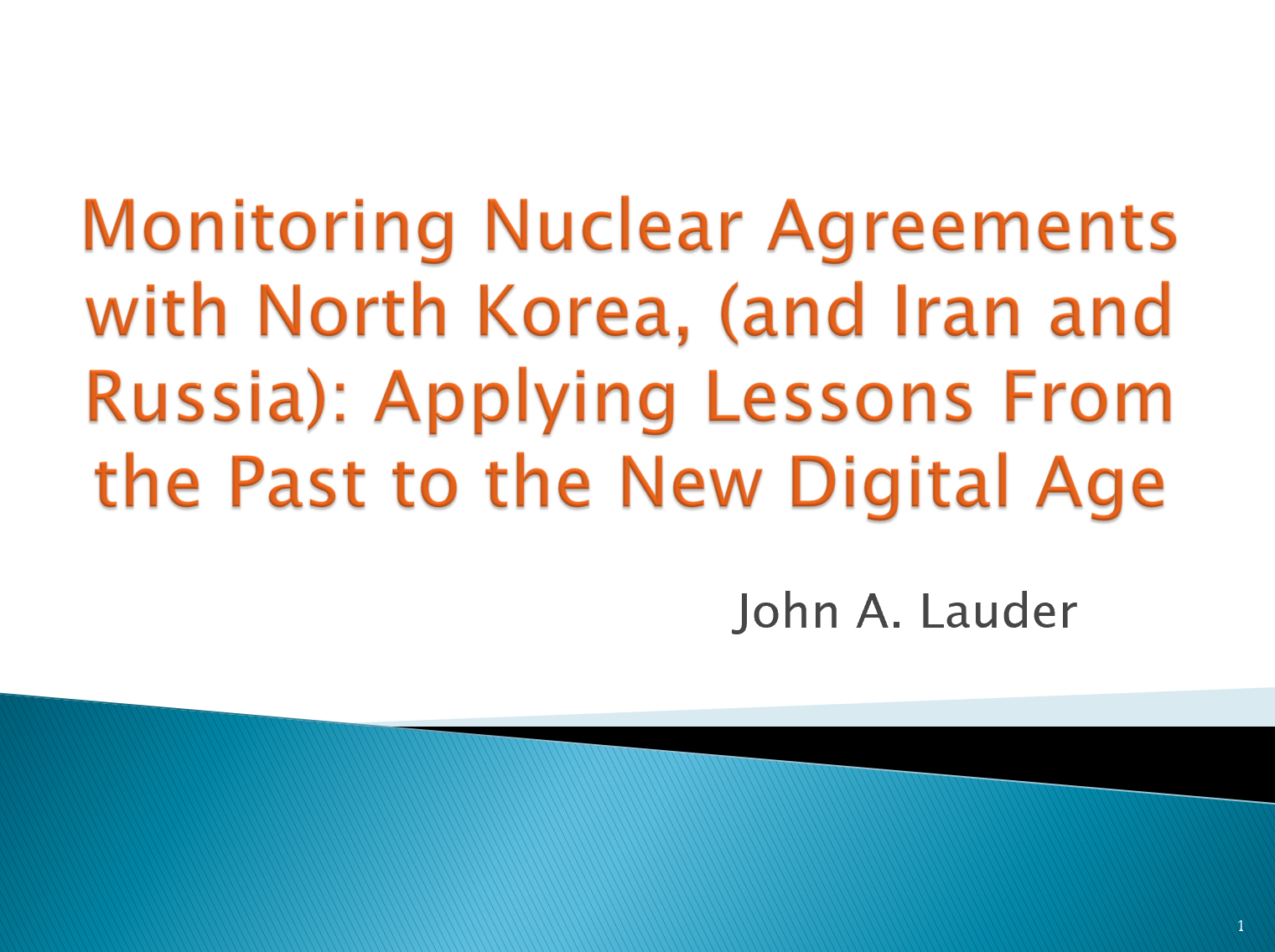Monitoring Nuclear Agreements with North Korea (and Iran and Russia): Applying Lessons from the Past to the New Digital Age
Monitoring Nuclear Agreements with North Korea (and Iran and Russia): Applying Lessons from the Past to the New Digital Age
SMA hosted a speaker session with John Lauder (Areté Associates) as part of its SMA Korea Strategic Outcomes Speaker Series. This speaker session supported SMA’s Korea Strategic Outcomes project. For additional speaker sessions and project publications, please visit the Korea Strategic Outcomes project page.
Date: 3 August 2018
Speaker Session Preview
SMA hosted a speaker session presented by John Lauder (Areté Associates) as a part of its SMA Korea Strategic Outcomes Speaker Series. Lauder spoke about how lessons learned from prior agreements can help the United States engage in successful negotiations with North Korea. He discussed the key elements of a successful monitoring strategy, as well as the challenges of monitoring nuclear disarmament. Furthermore, he provided some “good news” (monitoring capabilities are more robust than they have been in the past) and “bad news” (despite these increased capabilities, there are many reasons why monitoring will still be challenging) that US decisionmakers should consider when developing a monitoring strategy. To conclude the session, Lauder spoke about some areas in which he believes US decisionmakers can improve and provided some key takeaways, the most important of which is the US’s need for leadership.
This speaker session supported SMA’s Korea Strategic Outcomes project. For additional speaker sessions and project publications, please visit the Korea Strategic Outcomes project page.
To access an audio file of the speaker session, please contact Ms. Nicole Omundson (nomundson@nsiteam.com).
Briefing Materials
Biography
John Lauder is an independent consultant on Weapons of Mass Destruction, Nonproliferation, Arms Control, and intelligence analysis and collection. He retired from the United States government in the fall of 2004 with over 33 years of managerial, analytical, and policy experience, principally in the Central Intelligence Agency, National Reconnaissance Office, and as an arms control negotiator. As Deputy Director of the National Reconnaissance Office for National Support, he translated the most pressing security challenges of the nation into requirements for the acquisition and operation of satellite reconnaissance systems. Previously as Director of the DCI Nonproliferation Center and Chief of the DCI Arms Control Intelligence Staff, he oversaw the nonproliferation and arms control monitoring efforts of the Intelligence Community during a time of sweeping international and organizational change. He served subsequently for nine years as a senior manager and corporate officer within Areteꞌ Associates, a research and development company.
Mr. Lauder continues to be instrumental in advising and shaping nonproliferation, research, strategic planning, and development activities in the public and private sectors and is an active member of government, academic, industry, and laboratory advisory panels and task forces. He has helped lead broadly focused studies to improve intelligence on weapons of mass destruction, to address consequence management, to facilitate verification of international agreements, and to define initiatives for enhancing the counter-WMD and situational awareness capabilities of the United States and its allies.
Mr. Lauder has been awarded the Distinguished Career Intelligence Medal, the Distinguished Intelligence Medal, the NRO Gold Medal, and the Director of Central Intelligence’s Award for his leadership and innovation in collection systems, analytical approaches, and vital national security initiatives and decisions. He has a B.A. Summa Cum Laude from Hiram College and an M.A. in International Relations from Yale University
Slides

Comments